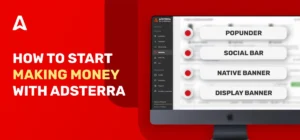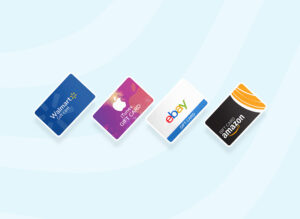When it comes to hobbies, many of us think of pastimes that fill our free time, spark creativity, and relieve stress. But imagine taking what you love and turning it into a profitable venture. By investing in your interests, you can open up opportunities to earn a secondary income or even build a sustainable business over time. Turning hobbies into valuable assets requires strategy, commitment, and a touch of entrepreneurial spirit. Let’s dive into the steps, strategies, and practical advice on transforming your passions into financial assets.
Contents
Understanding the Value of Hobbies
The journey to monetizing a hobby begins with understanding its potential value. Hobbies aren’t just activities; they can be skill sets that, when nurtured, become assets. People may pay for services, products, or insights related to a well-developed hobby. Think of chefs who started in home kitchens, fitness trainers who began with a passion for exercise, or artists who grew from hobby painters to professional illustrators. Recognizing this potential value is the foundation of a successful transformation.
Investing in your Hobbies to Make Money: Common Steps to Transform Your Hobbies into Profitable Assets
Here are helpful steps on how to transform your hobbies into profitable assets.
Assessing Which Hobbies Are Viable Investments
Not all hobbies have immediate financial value, so it’s essential to assess which ones offer a realistic potential for income. Here are a few key questions to ask:
- Is there a market demand? Research to see if people are actively seeking services, products, or knowledge related to your hobby.
- Can you offer something unique? Unique skill sets, perspectives, or creations set you apart in the market.
- Are you willing to invest time and money? Success depends on your dedication, so evaluate how much effort you’re ready to put in.
For instance, if you enjoy crafting homemade soaps, look into the market demand for organic, artisanal skincare products. If it’s strong, consider how you could bring a fresh twist to the market with exclusive scents or sustainable packaging.
Build Skills and Gain Expertise in your Hobbies
To turn a hobby into a profitable asset, becoming an expert in it is crucial. Skill development elevates the quality of your product or service, making it more attractive to potential buyers. Here’s how to approach skill-building:
- Take courses: Many online platforms offer affordable courses tailored to various skill levels. Skillshare, Udemy, and LinkedIn Learning are excellent resources for refining skills in art, music, technology, and more.
- Practice consistently: Like any business, mastery in your hobby requires regular practice. Set aside dedicated time each day or week to enhance your skills.
- Join communities: Connecting with others who share your passion offers valuable learning experiences and networking opportunities. Social media groups, forums, and local clubs are fantastic resources.
Develop a Plan and Set Up Goals
With a solid foundation, the next step involves creating a practical plan. Think of your hobby as a small business that requires structure, planning, and clear objectives to thrive. Here’s a structured approach to goal-setting:
- Define short-term goals: These are achievable milestones, such as building a portfolio, setting up a website, or securing your first client.
- Outline long-term goals: Consider what you aim to accomplish in the next year or beyond. It could be reaching a specific income target, expanding into new markets, or launching additional services.
- Break down the goals: To make them manageable, divide each goal into actionable steps. For example, if one goal is to sell products online, initial steps might include researching e-commerce platforms, setting up a product listing, and developing a marketing strategy.
Create a Brand for Your Hobby-Based Venture
Building a brand is essential for standing out and attracting customers. Branding is more than just logos or color schemes; it’s the unique identity that communicates what you offer and why it matters. Here are the basics of branding for your hobby:
- Define your mission: What value does your hobby bring to others? Your mission statement should convey this in a clear and engaging way.
- Design your logo and visuals: Tools like Canva or Adobe Spark can help you create logos, social media images, and banners that align with your brand’s aesthetics.
- Create a brand voice: This is the tone you use when communicating with your audience. Are you informal and friendly or professional and informative? Consistency is key.
By defining these elements, you create a recognizable brand that can grow and evolve as your business expands.
Build an Online Presence for the Hobby you intend to Transform into Business
In today’s digital age, having an online presence is nearly mandatory for any hobby-turned-business. An online platform helps showcase your work, attract new clients, and expand your reach. Here’s how to get started:
- Build a website or blog: A dedicated site serves as your online portfolio, shop, or information hub. Many hobbyists use platforms like WordPress, Wix, or Squarespace to create professional-looking websites.
- Use social media: Platforms like Instagram, Pinterest, and TikTok are ideal for visually-driven hobbies like art, cooking, and crafting. YouTube can be a powerful tool for instructional or tutorial-based content.
- Engage with followers: Building a loyal following takes time and interaction. Engage with comments, share behind-the-scenes content, and provide value through tips, tutorials, or inspiration.
Monetize Through Product Sales
Selling products is one of the most direct ways to turn a hobby into an income. Product sales apply to both physical and digital items. Here are a few avenues to consider:
- Physical products: If you craft handmade items, consider platforms like Etsy or even your own e-commerce store to reach a wide audience.
- Digital products: Graphic designers, writers, and photographers often create digital items like stock images, templates, or e-books. These products are easy to distribute and have low overhead costs.
- Merchandise: If your hobby has a following, creating branded merchandise such as T-shirts, mugs, or accessories can be a fun and profitable addition.
Generate Income Through Services
If your hobby is skill-based, offering services is a natural way to earn income. Services work well for things like photography, fitness training, music lessons, or graphic design. Here are some tips for turning services into income:
- Create packages: By offering packages, you can cater to different budgets and needs, making it easier for clients to choose an option that fits them.
- Set competitive prices: Pricing requires research; check what others in your niche charge and set competitive yet profitable rates.
- Focus on customer service: Exceptional service leads to repeat clients and referrals. Make sure every client interaction is positive and professional.
Leverage on Online Courses and Tutorials
If you’re comfortable teaching others, creating online courses is a profitable option. Platforms like Teachable, Udemy, and Skillshare allow you to build courses and reach a global audience. Courses have an upfront time investment but offer passive income potential. Tutorials or one-on-one coaching sessions can also be highly effective ways to share your expertise and earn from your knowledge.
Explore more on Affiliate Marketing
For hobbyists with an online following, affiliate marketing can become a significant income source. By promoting products or services you genuinely believe in, you can earn a commission on each sale. Here’s a straightforward approach to affiliate marketing:
- Choose the right products: Authenticity is essential. Only promote items you use and believe in.
- Provide valuable content: Instead of just posting links, explain why you recommend each product. Create reviews, tutorials, or guides to help readers see its value.
- Track results: Many affiliate platforms offer insights on clicks and conversions, helping you see which products resonate most with your audience.
Crowdfunding and Donations
Crowdfunding is a unique way to earn income, especially for creators with dedicated followers. Platforms like Patreon, Ko-fi, and Kickstarter allow fans to support your work through donations, memberships, or funding campaigns. This approach works well for writers, musicians, or artists who want to connect directly with their audience.
Seek Collaborations and Sponsorships
Once you’ve built a brand and following, consider partnering with companies or other creators in your niche. Collaborations can introduce your work to new audiences and add credibility. Sponsorships with brands are also lucrative, particularly for content creators, bloggers, and YouTubers. Partnering with a brand you genuinely appreciate can benefit both parties.
Evaluate and Scale Your Hobby-Business
To grow, regularly evaluate what’s working and where improvements can be made. Look at sales, client feedback, and website analytics to identify areas for development. As you gain experience and your business evolves, consider expanding by hiring help, outsourcing tasks, or diversifying offerings.
Balance your Passion and Profit
While profit is the goal, it’s essential to keep your passion alive. Burnout can happen when a beloved hobby becomes all about income. Balance profit-driven decisions with activities that remind you why you started in the first place. Setting boundaries, taking breaks, and dedicating time to non-work aspects of your hobby help maintain this balance.
Frequently Asked Question (FAQs)
Here are frequently asked questions that you might find helpful to you.
How Can I Identify Hobbies That Have Income Potential?
Choosing hobbies with income potential starts with assessing your interests and skills and researching where they intersect with market demand. Ask yourself if there are audiences willing to pay for your hobby—such as collectors, students, or clients seeking your expertise. Try observing online communities, marketplaces, or platforms like Etsy or Patreon. These can give you a sense of demand for your particular interest, and even an idea of the pricing structures. Knowing where people spend on hobbies can guide you toward a hobby that fits your passions and has profit potential.
Do I Need Professional Skills to Earn from My Hobby?
No, you don’t need to be a professional to start earning from a hobby, but a level of expertise can make your work more appealing. Think of where your skills stand and consider whether you can create unique, quality products or services. As you grow and gain feedback, you can improve your skills. In some fields, like digital art or blogging, you can monetize from the start, while in others, like photography, skill development might take time before you reach a professional level. Always keep learning—an evolving skillset can expand your earning opportunities.
What Are Some Low-Cost Ways to Start Earning from a Hobby?
There are plenty of affordable ways to get started with a hobby. For instance, if you’re into writing, you can start blogging on free platforms, or if you enjoy teaching, you can host webinars on sites like Zoom. For selling crafts or handmade items, online marketplaces like Etsy require a small listing fee, and social media provides free promotional opportunities. Consider using budget-friendly or free resources, like YouTube tutorials for learning, or freeware for editing and design. By leveraging what’s free or low-cost, you can turn your hobby into a revenue stream without a hefty upfront investment.
How Can I Balance Monetizing My Hobby Without Losing Interest?
Balancing passion and profit can be tricky, but it helps to set boundaries and not let the pressure to earn override your enjoyment. Start by setting goals—decide if your priority is profit or passion, and focus on how much time you genuinely want to devote. Building a sustainable income is gradual; avoid forcing yourself to produce if it drains you. Some people separate business aspects, like client work, from personal projects to preserve their love for the hobby. Remember, the goal is to add value to your life—not to turn your passion into a chore.
What Platforms Are Best for Promoting a Monetized Hobby?
Your platform choice should match your hobby and target audience. If your hobby is visual, like photography or art, Instagram and Pinterest are effective. For tutorials or in-depth content, YouTube, TikTok, or blogging can build a following. LinkedIn can help for professional services like coaching or consulting. Etsy is perfect for handmade goods, while Patreon works for content creators with dedicated supporters. Diversifying across two or three platforms can maximize your reach, but focus on one at first to build a core audience and avoid burnout.
How Long Does It Typically Take to Earn Profitably from a Hobby?
Turning a hobby into a profitable venture varies widely—it could take months or years, depending on the demand, your skill level, and the time invested. Some people start earning within a few months by selling on platforms like Fiverr, while others take years to build a solid brand or customer base. Creating a realistic timeline can help manage expectations and keep you motivated. The key is consistency and gradual improvement; the more value you provide, the quicker you’ll see returns.
How Can I Build a Brand Around My Hobby?
Building a brand around your hobby means creating a unique identity that resonates with your audience. Start by defining what sets you apart—whether it’s your style, the quality of your work, or your message. Use a consistent color scheme, logo, and voice across your platforms. Engage with your audience authentically, sharing your journey, challenges, and achievements. Branding also includes networking, collaborating with others in your field, and receiving feedback to improve. A clear, relatable brand can elevate your hobby to something memorable and profitable.
Can I Turn a Hobby into a Full-Time Job?
Yes, many people have transitioned from hobbies to full-time jobs, but it often requires dedication, planning, and financial stability. As you start monetizing, track your income and consider setting savings goals that could help fund a full-time transition. Build a consistent customer base or income stream to test your hobby’s stability before making the switch. It may take time to reach a point where your hobby provides sufficient income to replace a regular job, so having a backup plan or supplementary income is wise as you work toward your goal.
Are There Risks Involved in Monetizing a Hobby?
Yes, there can be risks, especially if you invest time and money without seeing a return. The pressure to perform can also risk draining the enjoyment you once felt. Financially, depending solely on a monetized hobby may be unstable, particularly if the market for it fluctuates. Additionally, some hobbies may require licensing, legal considerations, or tax filings, so it’s essential to research regulations in your area. Start small, avoid heavy investments upfront, and keep your personal connection with the hobby strong to minimize these risks.
Conclusion
Turning a hobby into a valuable asset can be a deeply rewarding experience. With a clear plan, persistence, and passion, it’s possible to develop an income stream from what you genuinely enjoy. Every step of the journey, from skill-building to branding to marketing, brings you closer to creating a profitable, sustainable business. So, if you’re ready to invest in your interests, dive in with confidence—after all, you’re doing what you love.




